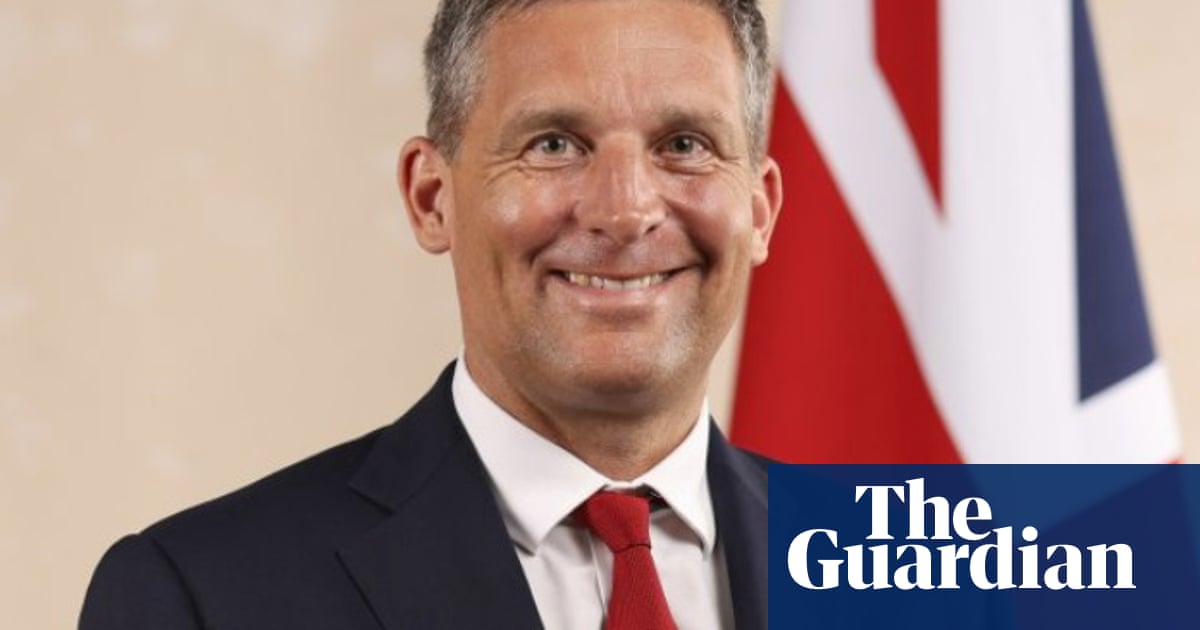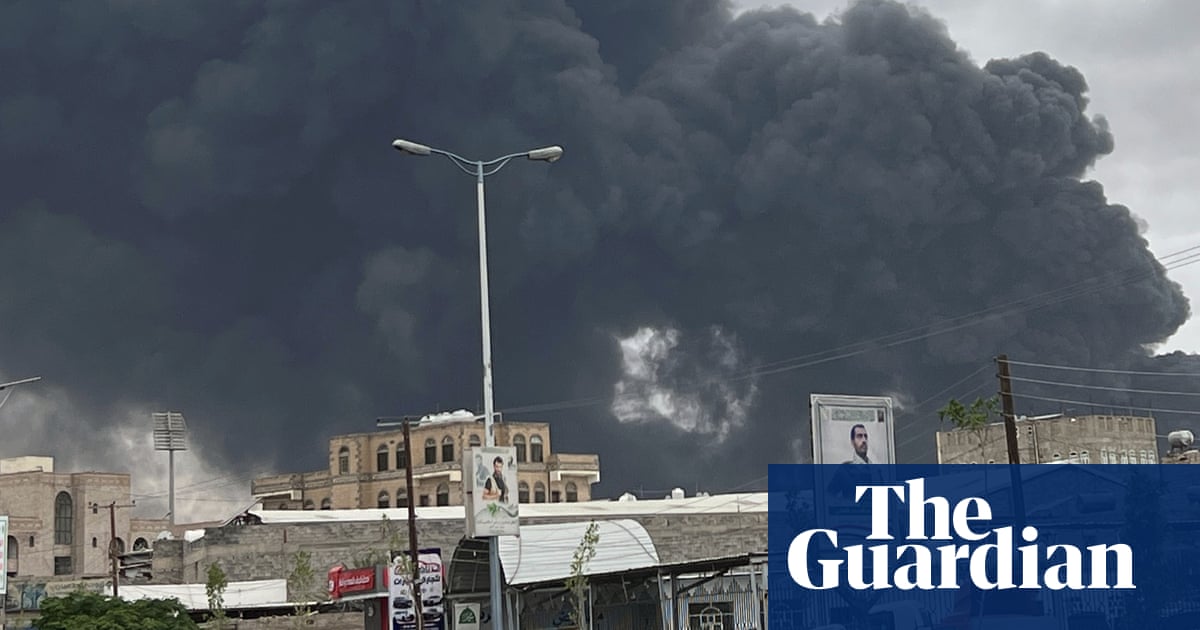Iran has urged the US to end its support for Israel’s continuing strikes on Yemen, claiming Israel is trying to use its conflict with the Houthi-led government to drive a wedge between Iran and the US in the negotiations over the future of Tehran’s civil nuclear programme.
The strikes have been criticised by the UN-recognised Yemen government based in Aden , which said it had not been consulted and airstrikes alone were not an integrated plan to remove the Houthis from power. Yemen has been divided between the Houthis and the official government since the Houthis captured the capital, Sana’a, in 2015.
Israel claimed 20 of its warplanes on Monday had completely destroyed the Houthi-held port of Hodeidah, as well as a nearby cement factory. The Houthis said four people had been killed. On Tuesday, Israel struck Sana’a international airport, warning civilians to leave the area.
In launching the attacks, probably more extensive than those mounted by the US, Israel’s prime minister, Benjamin Netanyahu, has been highlighting Iran’s role in arming the Houthis. The Shia group mounted an attack on Ben Gurion airport on Saturday that the Houthis said was an act of solidarity with Palestinians in Gaza.
Israel was shocked that its air defences were penetrated by a single Houthi missile, but Iran believes Israel is escalating the crisis in an attempt to disrupt the negotiations between the US and Iran over its nuclear programme. The talks are due to resume on Sunday.
Israel remains opposed to a US-negotiated settlement with Iran that leaves its civil nuclear programme intact, and wants US cooperation in an attack on Iran’s nuclear sites.
The Iranian foreign ministry on Monday issued a statement insisting the Houthis operate independently from Iran, and was not a proxy army. The ministry said it “considers the repetition of baseless claims attributing the courageous actions of the Yemeni people in self-defense and support for the Palestinian people to Iran as an insult to this powerful and oppressed nation, and reminds us that it is the US army that, in support of the Zionist regime’s genocide, has entered the war against the Yemeni people and is committing war crimes by attacking infrastructure and civilian targets in various cities of this country.”
The foreign minister, Abbas Araghchi, said: “Netanyahu is brazenly trying to dictate to President Trump what he can and cannot do in his diplomacy with Iran. The world has also learned how Netanyahu is directly interfering in the US government to lead it to another disaster in our region.
“The Netanyahu minority in America, who are terrified of diplomacy, have now revealed their real agenda. The world should take note of what their real priorities are.”
The Iranian foreign ministry spokesperson, Esmaeil Baqaei, denounced the strikes as “a blatant crime and a gross violation of the principles and rules of international law”.
Baqaei urged international and regional powers “to stop the killing and destruction America and Israel are committing in Islamic countries”.
The escalation in Yemen represents a further diplomatic difficulty for Iran since support for the Houthi’s acts of solidarity with Gaza has featured prominently in Iran’s conservative media, and numerous UN reports have documented Iranian arms shipments to the Houthis.
But Iran’s support for the Houthis, it is argued, hands US Republican hardliners the chance to lobby that Iran’s support for resistance groups in the region must form a central part of the US agenda in the talks. Iran has insisted discussions will focus solely on the monitoring of its civil nuclear programme, and the lifting of sanctions.
For the past month, conflicting statements from the Trump administration about its requirements for Iran, such as whether it would abandon its domestic uranium enrichment, have disturbed many Iranians. Araghchi has insisted the right to enrich, rather than import uranium, was normal for many signatories to the Nuclear Non-Proliferation Treaty and that Iran’s entitlement to enrich was a red line.

.png) 5 hours ago
3
5 hours ago
3













































